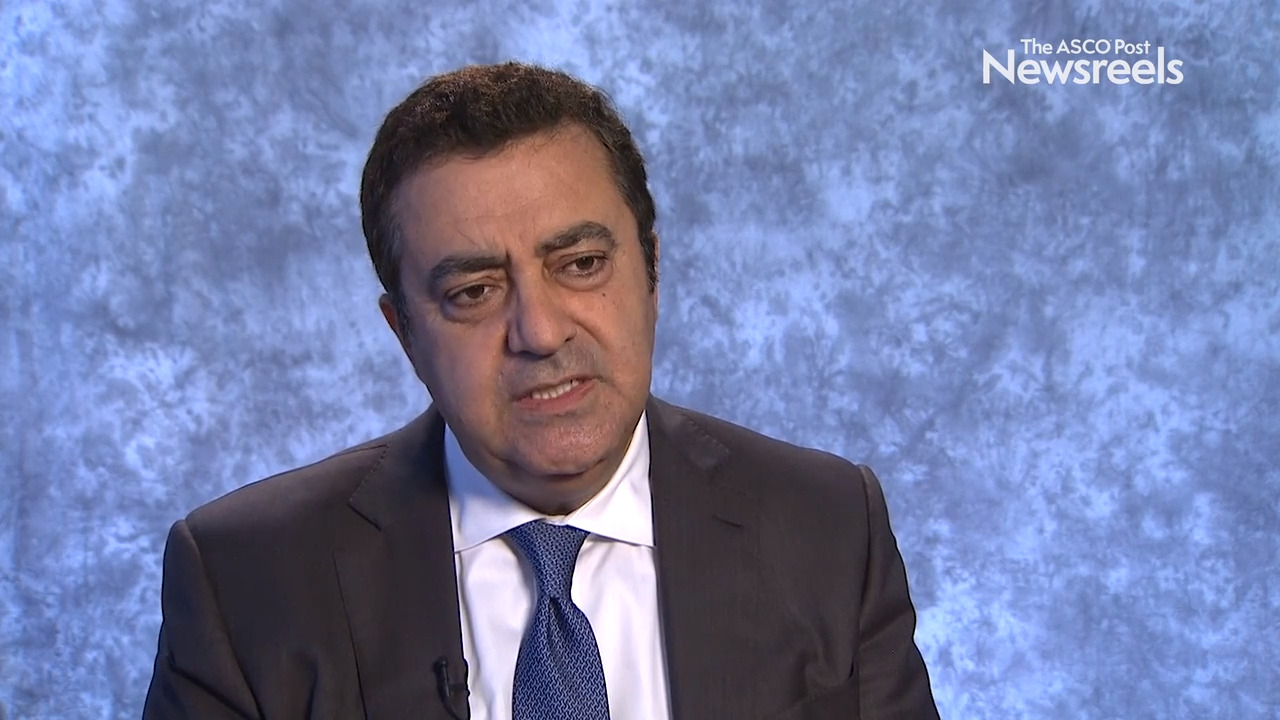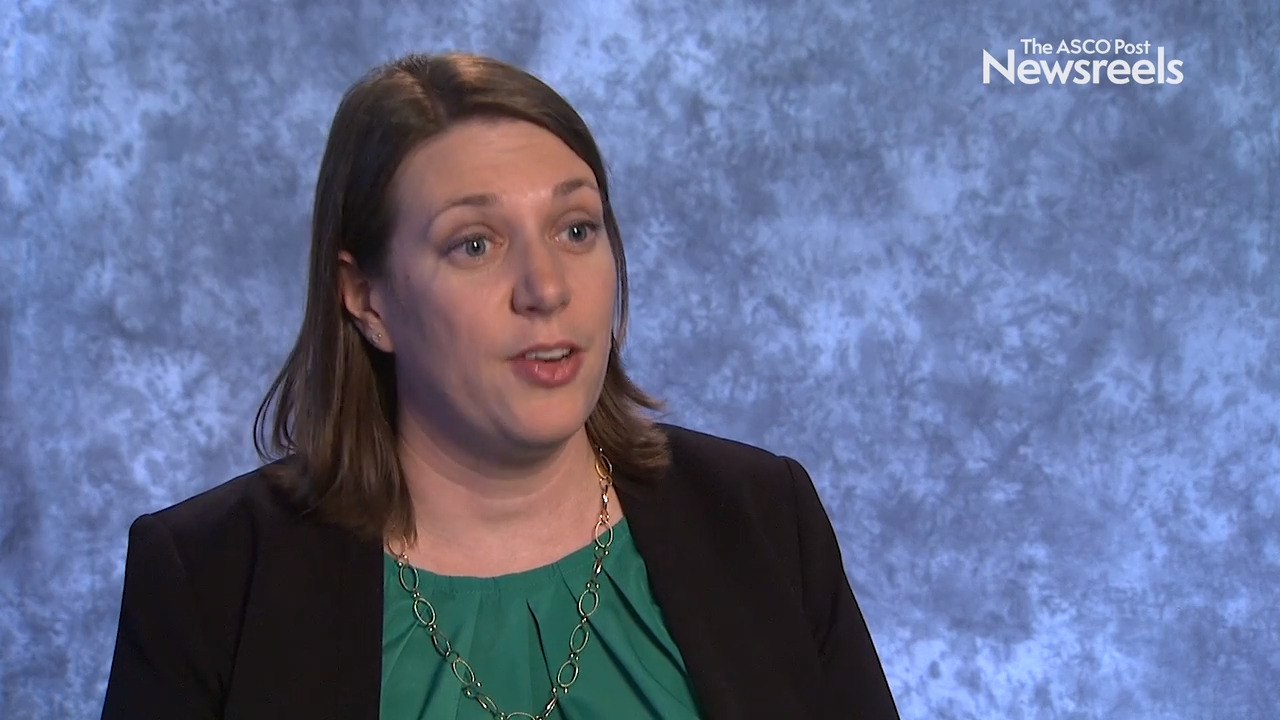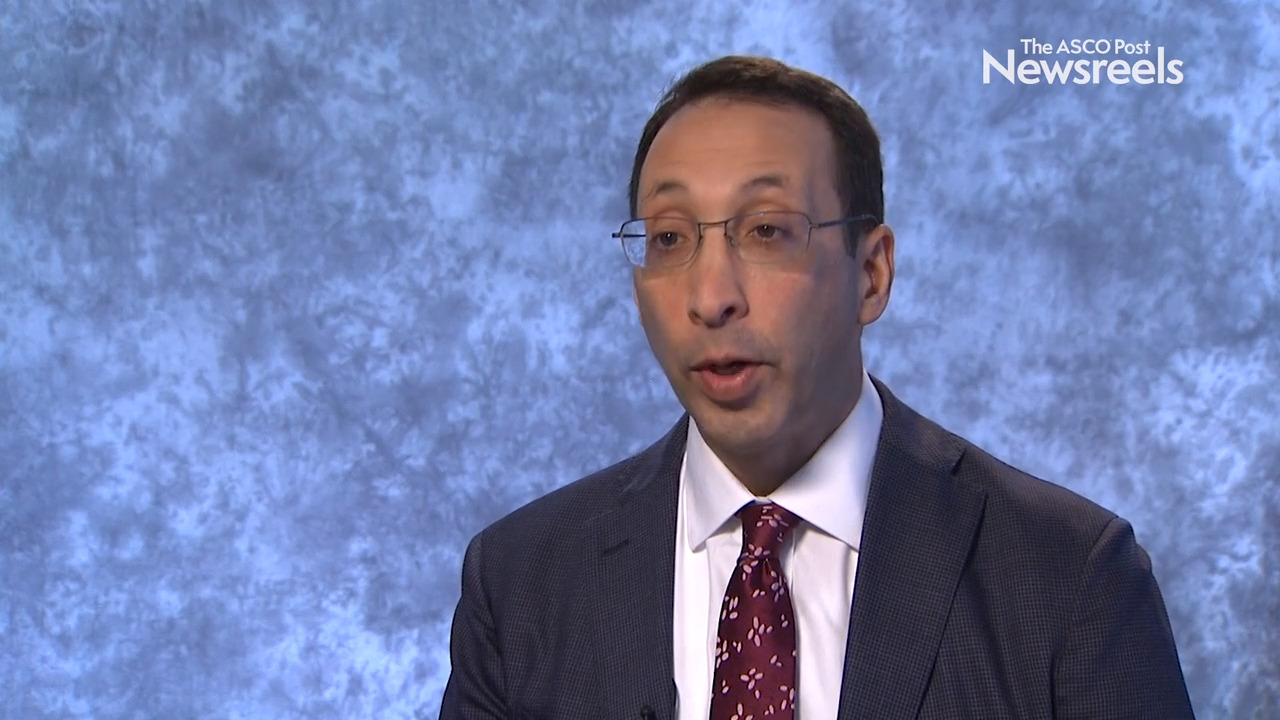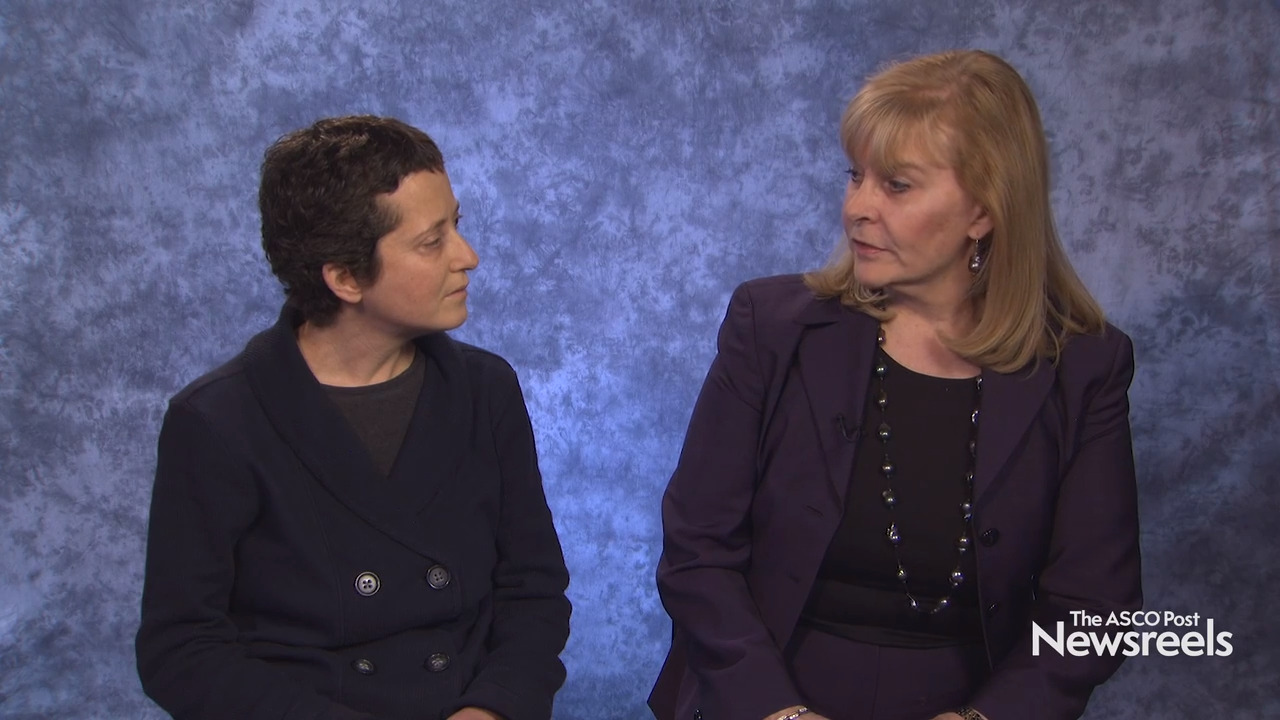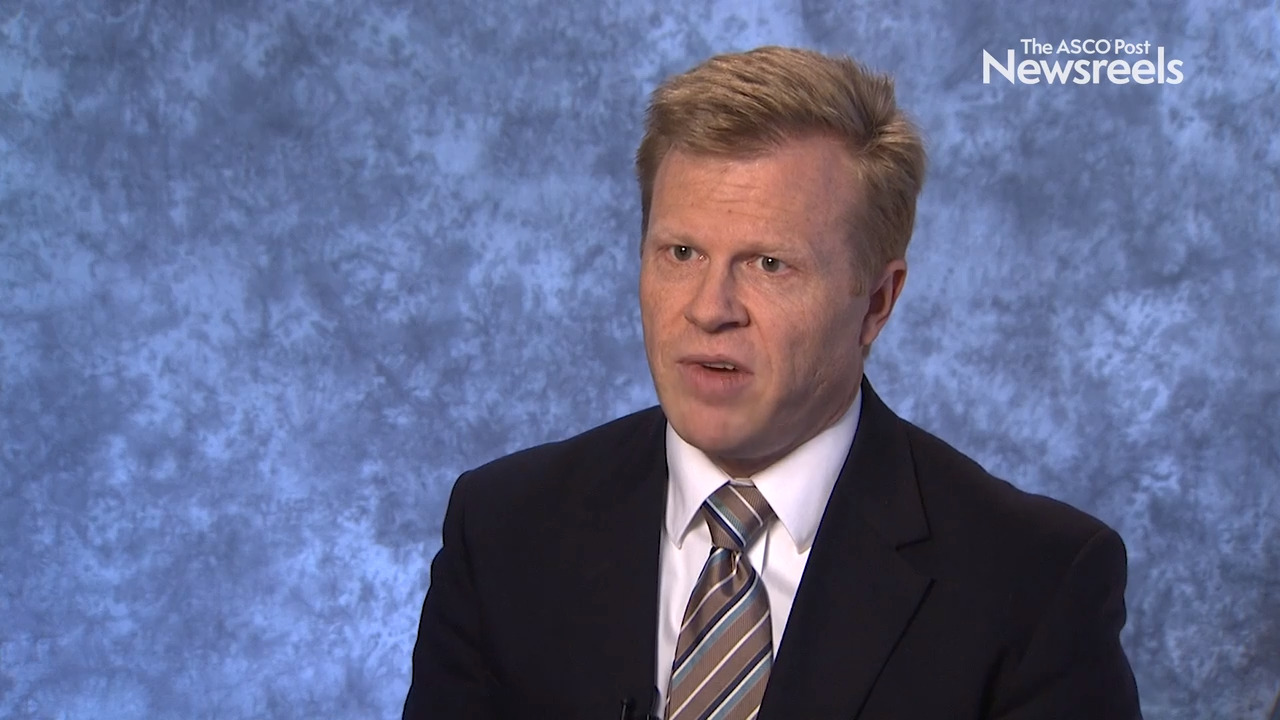Norman E. Sharpless, MD: Director of the National Cancer Institute: Articulating a Vision
2018 ASH Annual Meeting & Exposition
Norman E. Sharpless, MD, Director of the National Cancer Institute, discusses his vision for the NCI in four key areas––big data, clinical trials, workforce development, and basic science––and how this vision affects the hematology community.
Anas Younes, MD, of Memorial Sloan Kettering Cancer Center, discusses trial findings on ibrutinib plus rituximab, cyclophosphamide, doxorubicin, vincristine, and prednisone in people with previously untreated non–germinal center B-cell–like diffuse large B-cell lymphoma (Abstract 784).
Jennifer Ann Woyach, MD, of The Ohio State University, discusses trial findings on ibrutinib alone or in combination with rituximab compared with bendamustine plus rituximab in untreated older people with chronic lymphocytic leukemia (Abstract 6).
Steven M. Horwitz, MD, of Memorial Sloan Kettering Cancer Center, discusses phase IIa study findings on the novel SYK/JAK inhibitor cerdulatinib for relapsed/refractory peripheral T-cell lymphoma and cutaneous T-cell lymphoma (Abstract 1001).
Julie Vose, MD, MBA, of the University of Nebraska Medical Center, and Merav Bar, MD, of the Fred Hutchinson Cancer Research Center, discuss study findings on the long-term effects in people with relapsed or refractory non-Hodgkin lymphoma and chronic lymphocytic leukemia who received CD19-targeted CAR T-cell infusions, survived more than a year, and had at least 1 year of follow-up data after their first treatment (Abstract 223).
Tait D. Shanafelt, MD, of Stanford University, discusses phase III study findings on ibrutinib-based therapy vs standard fludarabine, cyclophosphamide, and rituximab chemoimmunotherapy in untreated younger patients with chronic lymphocytic leukemia (Abstract LBA4).
